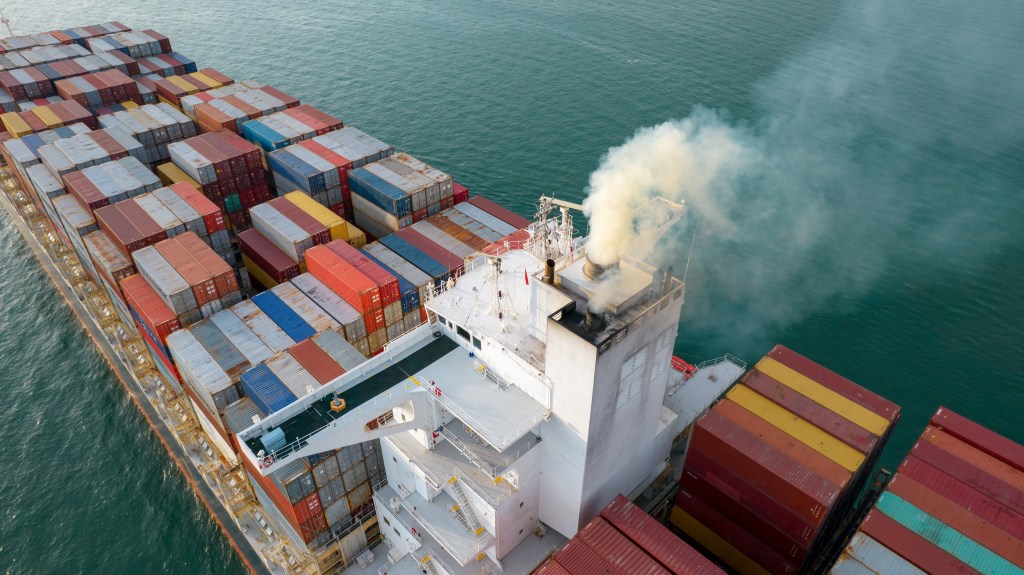Everything you buy and every service you pay for pollutes. In the case of a coffee, it might be a little. In the case of a Chevy Suburban or a flight to Durban, it might be a lot.
Exactly how much, though, isn’t easy to determine. That’s in part because hardly any companies comprehensively track their emissions — just 10% log or estimate carbon pollution across all phases of their products or services, according to the Boston Consulting Group. Some of that might be because some companies are opposed to carbon accounting, but in many cases, they simply lack the expertise to do it right.
Ignorance won’t get them far for long, though. In January, the EU started requiring companies to disclose their carbon emissions, and in the U.S. the SEC is working on similar rules. Just as the SEC helped to standardize financial accounting over the last nine decades, government regulation promises to do the same for carbon disclosures.
As governments have telegraphed their intent to regulate carbon accounting, a number of firms have sprung up to assist companies in the process. One of them is CarbonChain, which is announcing a $10 million Series A, TechCrunch+ has exclusively learned. The round was co-led by Union Square Ventures and Voyager Ventures.
The startup has been cooking for a few years, co-founder and CEO Adam Hearne told TechCrunch+. It was part of Y Combinator’s spring 2020 cohort, and it has spent much of that time building a massive dataset that covers 80% of the world’s emissions, he said.
“A lot of sources of emissions in the world are well known. If you think of refineries that have been around for 30 years, mines that have been around for 100 years, in some cases, ships that are 30 years old. There’s a lot of very predictable assets. And we know those assets individually really well.”
Hearne used to work in mining, and co-founder Roheet Shah used to work on oil and gas projects. As a result, they have an intimacy with high-polluting sectors that others may not. “They see us as more partners, not people trying to infiltrate their knowledge networks,” Hearne said.
Save $200+ on your TechCrunch All Stage pass
Build smarter. Scale faster. Connect deeper. Join visionaries from Precursor Ventures, NEA, Index Ventures, Underscore VC, and beyond for a day packed with strategies, workshops, and meaningful connections.
Save $200+ on your TechCrunch All Stage pass
Build smarter. Scale faster. Connect deeper. Join visionaries from Precursor Ventures, NEA, Index Ventures, Underscore VC, and beyond for a day packed with strategies, workshops, and meaningful connections.
The emissions profiles for some sectors are easy to calculate. Electric companies, for example, can determine most of their emissions by tallying up how much fossil fuel they burn. But other companies have a harder time, like construction companies, which don’t control the steel supply chain, yet their choice of steel significantly impacts their carbon emissions. Called Scope 3 emissions, these indirect emissions can be the hardest to estimate.
CarbonChain started by “going where the emissions are,” Hearne said. That meant finding customers in commodities trading firms, including Gunvor Group, Concorde Resources and Mocoh. The startup has also started working with companies in finance and insurance, including Rabobank and Lloyd’s. Hearne said that some companies have already received discounted rates from lenders who also work with CarbonChain and recognize that many low-carbon assets have lower operating costs.
CarbonChain’s customers represent around 2% of the world’s emissions, he said, and the startup has recurring revenue “into the millions.” It charges companies based on the number of calculations needed to determine their footprint.
The funds from the new round will go toward establishing an office in New York and expanding its existing operations in London, including formalizing the sales team and hiring for the tech team.
Many companies are clamoring for services like this. Even those that aren’t today will find themselves in need in a few years. Governments are increasingly moving toward requiring climate disclosures, and carbon border adjustments, like the sort the EU is considering, would mean that companies in markets without disclosure requirements will need to understand their footprint or find themselves at a competitive disadvantage. The world is realizing that without data, climate pledges are often little more than greenwashing. And nobody likes getting the wool pulled over their eyes.


